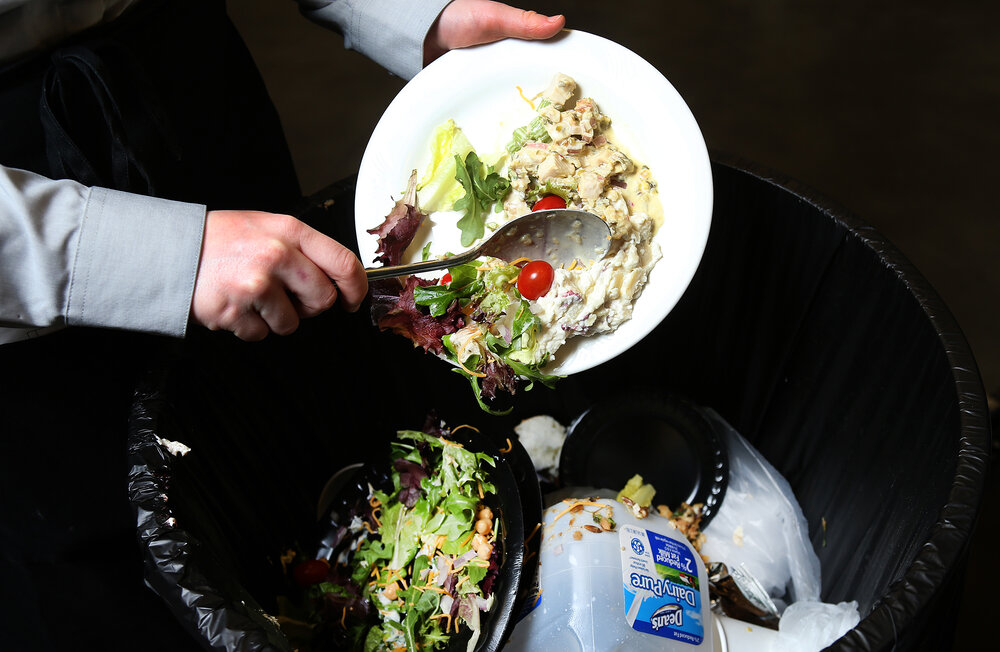Iranians waste the least food in West Asia

TEHRAN – The Food Waste Index Report 2021 from the United Nations Environment Program (UNEP) states that Iranians have the lowest food waste per capita in West Asia (the Middle East).
This report sheds new light on the magnitude of food waste, and on the prevalence of household food waste on all continents, irrespective of country income levels.
By throwing away 17 percent of the food available at retail, food service, and consumer level, the impacts of food systems on climate, nature, and pollution are generated needlessly. An estimated 8-10 percent of global greenhouse gas emissions are associated with food that is not consumed and yet none of the Nationally Determined Contributions to the Paris Agreement mention food waste.
This suggests a total of around 931 million tons of food waste across these three sectors, sixty-one percent of which came from households, 26 percent from food service, and 13 percent from retail.
This suggests that 17 percent of total global food production may be wasted.
The weight roughly equals that of 23 million fully-loaded 40-tonne trucks bumper-to-bumper, enough to circle the Earth seven times, the UN agency said.
It finds that in nearly every country that has measured food waste, it was substantial, regardless of income level.
It shows that most of this waste comes from households, which discard 11 percent of the total food available at the consumption stage of the supply chain. Food services and retail outlets waste 5 percent and 2 percent, respectively.
On a global per capita level, 121 kilograms of consumer-level food is wasted each year, with 74 kilograms of this happening in households.
In high-income countries, an average of 79 kilograms of food is wasted by families per year. Per capita, food waste is 76 kilograms per year in households in middle-income countries and 91 kilograms per year in poor countries.
Food waste at 5.9m tons a year
In Iran, the food waste estimate is 5.9 million tons a year. Every Iranian throws away an average of 71 kilograms of food a year. In Iran, the food waste estimate is 5.9 million tons a year. Every Iranian throws away an average of 71 kilograms of food a year.
According to UN estimates, Iranians have the lowest food waste per capita in West Asia (the Middle East). Bahrain has the highest food waste per capita in this region. Every Bahraini loses 132 kilograms of food a year, which is more than other people in the region.
Food waste per capita in other countries of West Asia in a year includes Iraq with 120 kg, Lebanon and Saudi Arabia with 105 kg each, Syria and Yemen with 104 kg each, UAE, Kuwait, Oman, and Qatar with 95 kg each, and Jordan with 93 kg each.
Some other countries that have more food waste per capita than Iran are Canada with 79 kg, the USA with 79 kg, France, Germany, Britain, Turkey, and Afghanistan.
Italy with 67 kg, Russia with 33 kg, China and Japan with 64 kg each, Brazil with 60 kg, and the Netherlands with 50 kg, are among the countries that have less food waste per capita than Iran.
690m people were hungry in 2019
This is while, the Food and Agriculture Organization of the United Nations (FAO) estimates that 690 million people were hungry in 2019, a number that is expected to rise sharply during and post-COVID-19. With a staggering 3 billion people that cannot afford a healthy diet.
Sustainable Development Goal 12.3 (SDG 12.3) captures a commitment to halve food waste at the retail and consumer level and to reduce food loss across supply chains. This Food Waste Index Report aims to advance progress on SDG 12.3 in two ways. Firstly, it presents the most comprehensive food waste data collection, analysis, and modeling to date, generating a new estimate of global food waste.
Country-level food waste estimates have been calculated, and while confidence intervals for estimates vary by region and by sector, they offer new insight into the scale of the problem and into the substantial prevention potential in low-, middle- and high-income countries.
Secondly, this report publishes a methodology for countries to measure food waste, at household, food service, and retail levels, in order to track national progress towards 2030 and to report on SDG 12.3.
Countries using this methodology will generate strong evidence to guide a national strategy on food waste prevention, food waste estimates that are sufficiently sensitive to pick up changes in food waste over two- or four-year intervals, and that enable meaningful comparisons among countries globally.
FB/MG
Leave a Comment